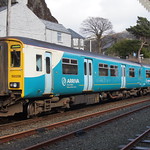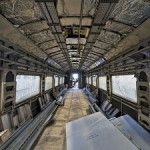 So the Institute of Economic Affairs are yet again proposing converting British commuter railways to busways, using reams of dubious statistics gathered from third-world countries that can’t afford rail-based commuter networks to try and make their case.
So the Institute of Economic Affairs are yet again proposing converting British commuter railways to busways, using reams of dubious statistics gathered from third-world countries that can’t afford rail-based commuter networks to try and make their case.
The one case of a former railway converted to a guided busway in Cambridgeshire is widely considered to be a costly failure, providing none of the benefits of light or heavy rail while sharing all the drawbacks.
Crackpot ideas for converting perfecly good existing railways into private roads have been swilling around in right-libertarian circles and their tobacco industry funded “think tamks” for many years. Back in the 1980s British Rail spent a lot of time and effort refuting their technologically-illiterate nonsense, when there a serious worry these moonbats had the ear of a notoriously rail-hating Prime Minister.
Yet despite being throroughly debunked at the time, much like young-earth creationism, the bad idea stubbornly refuses to die.
Can they seriously never have noticed the public’s reactions whenever the words “Rail replacement bus” are heard?
What is it about these cranks? It makes you wonder if these people have never quite got over not getting a train set for Christmas when they eight years old. Or perhaps they used to get beaten up by train-spotters at school?



Great rant. Good point, well made.
You remind me of a letter, probably to The Times, written some decades ago. It went something like this:
Sir,
With respect to the proposal to relocate Victoria Coach Station to Denham and link it to central London by converting the railway line to a private bus route, may I make some suggestions.
First, there will be many vecickes using this private route and having individual drivers in each bus or coach is very inefficient. Would it not save money by slaving some of these vehicles to one leader?
Second, it has been shown that rubber on concrete is less efficient than metal on metal. Considerable fuel savings could be achieved by altering the wheels on the buses to use this technique.
Third, I am concerned that we will have these fleets of busses moving at relatively high speeds down a relatively narrow road. If someone could devise a technique for enforcing separation between vehicles then a public transport technology with considerable potential will have been devised.
Yours,
Xxxx
Editor Railway World.